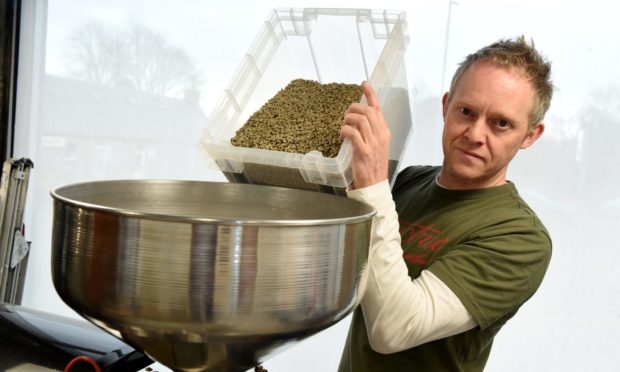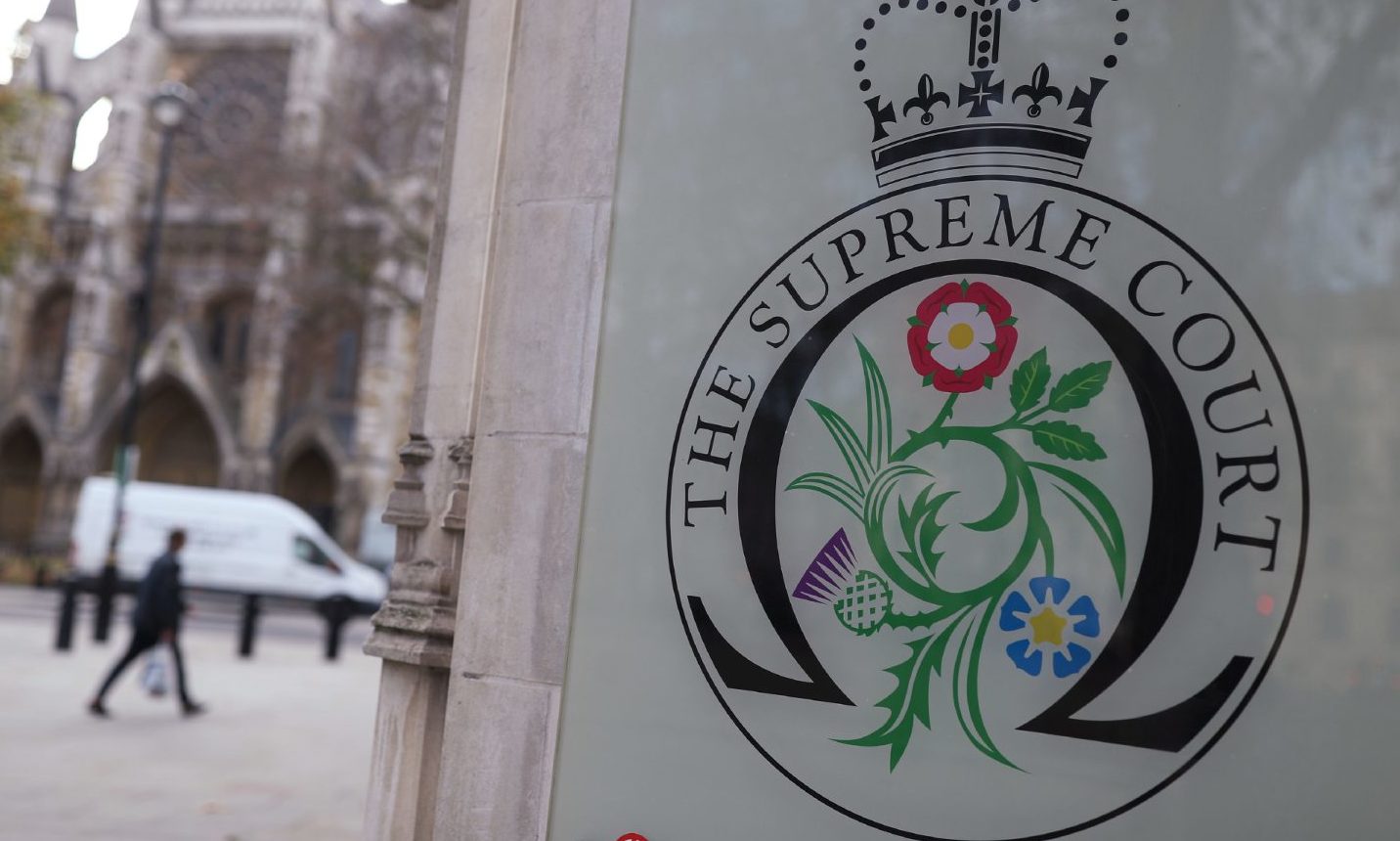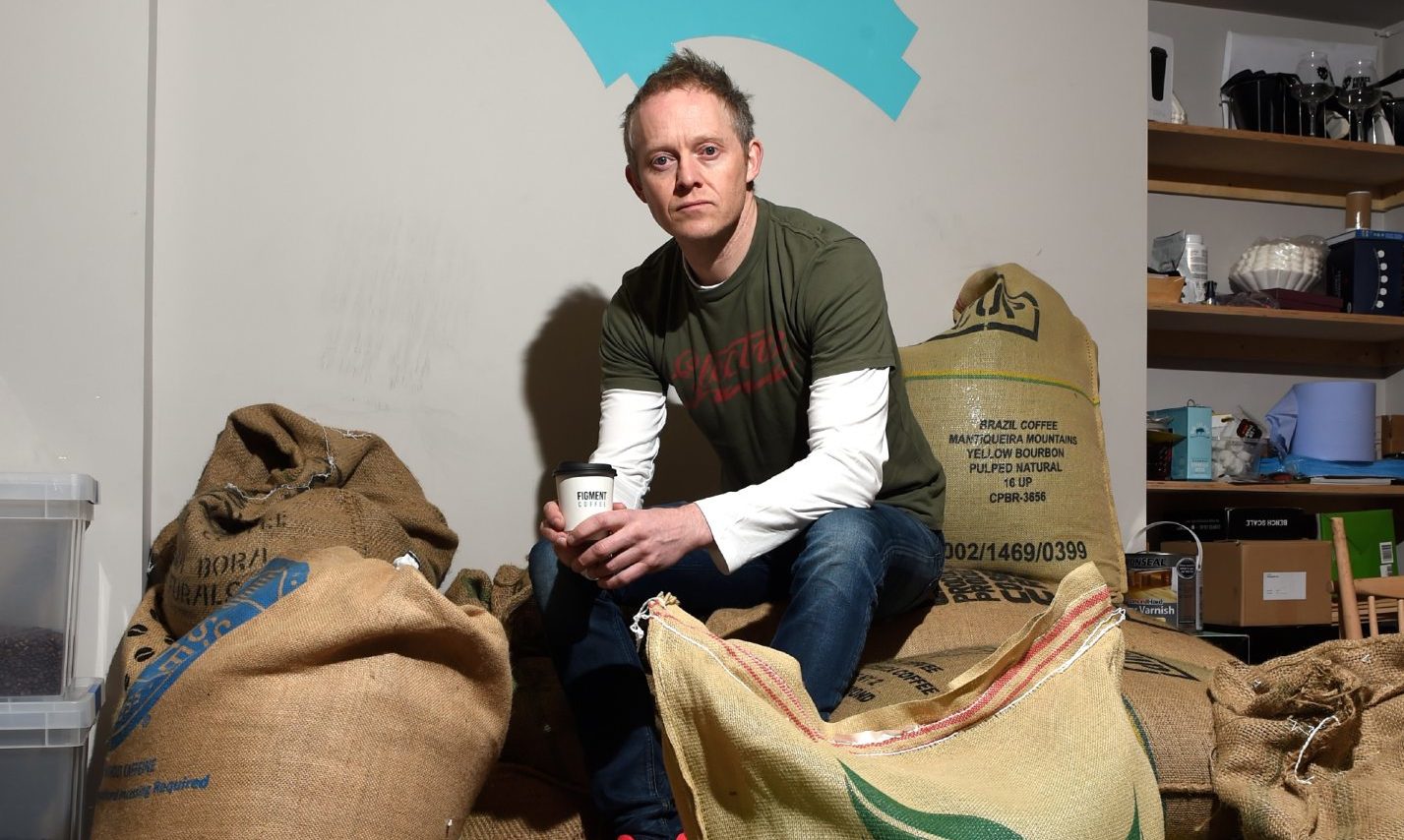A landmark legal ruling by the UK’s highest court may have saved “hundreds of thousands” of jobs across the country, with a potential £100 million boost for Scotland.
This morning the Supreme Court issued a judgement in a £1.2 billion battle regarding the wording of insurance documents.
It followed a test case brought by the Financial Conduct Authority (FCA), after some firms claimed their business interruption policies did not cover the circumstances of the Covid-19 pandemic.
They were accused of leaving tens of thousands of small and medium-sized businesses “high and dry” – cut off from lifeline funding after paying into policies “in good faith”.
Around 370,000 businesses across the UK are now expected to benefit from having previously-rejected claims re-examined by insurers.
While the decision is not legally binding in Scotland, it is expected that many north of the border will still benefit – with around £100m expected to be paid out.
The FCA’s executive director of consumers and competition, Sheldon Mills, said: “Coronavirus is causing substantial loss and distress to businesses and many are under immense financial strain to stay afloat.
“Our aim throughout this test case has been to get clarity for as wide a range of parties as possible, as quickly as possible, and the judgment decisively removes many of the roadblocks to claims by policyholders.
“We will be working with insurers to ensure that they now move quickly to pay claims that the judgment says should be paid.”
Andrew McRae, policy chair for the Federation of Small Businesses (FSB) Scotland, said: “It is of great concern it has taken a decision from the courts to get insurers to pay out on policies which responsible business owners bought in good faith.
“But to save many operators that are already on the brink, we need to see providers pay out quickly.
“After a nightmare year, we can’t see the insurance industry drag their heels.”
Decision hailed as business ‘lifeline’
Managing director of Aberdeen-based wholesaler Caber Coffee, Findlay Leask, is one of the thousands of business owners who has struggled to claim insurance during the pandemic.
The initial lockdown last March caused his income to drop to around 5% of what it had been previously, with “pretty much the entire customer base” forced to shut overnight.
He said policies including so-called Acts Of God were not honouring disruption caused by the pandemic.
“Whether it’s flooding or your car has been hit by a tree, they’ll turn around and say it’s an Act Of God and they can’t pay out,” he said.
“And whether you’re an atheist or a great believer, there appears to be little argument against these decisions to get them overturned.
“Businesses will see this ruling as a lifeline to get some financial assistance after everything they’ve gone through over the last nine months.
“The opportunity to appeal the decisions of insurers will be much welcomed.
“Nobody is expecting them to say they’ll replace all our turnover, but they could do an examination of costs and make a contribution.”
Hotelier Tony Story, who runs the four-star Kingsmills and five-star Ness Walk hotels in Inverness, has also struggled to claim business interruption insurance.
Despite his businesses being closed, they are still racking up bills of around £250,000 a month in fixed costs and topping up furloughed staff wages.
He said: “When we tried to claim we pretty much had the door shut on us.
“For all our properties we must pay around £100,000 a year in insurance.
“It was like the analogy of the banker – he’s walking beside you with an umbrella, but as soon as it starts to rain he goes away with it.
“Business interruption insurance is quite clearly designed for business interruption – and the first point for many insurers is ‘how can we void this claim?’
“So this could be hugely meaningful.
“At a time like this, it is good news.”
After the initial lockdown announcement, the “first thing” Neil Glover did was contact his insurers.
The founder of the Figment coffee shop in Aberdeen said: “They basically told me there was no chance and it wasn’t worth pursuing.
“They were unequivocal about it.
“Unless the pandemic was specifically stated in the policy, we would not be covered.
“We have huge standing costs – things like water, electricity and broadband – and they aren’t being compensated for.
“I understand it’s a balancing act and it’s difficult to find the money, but it’s so important that we should be able to claim on our insurance when situations like this arise.
“This is a glimmer of hope.”
Scepticism over future struggle
Keith Ballam, who runs Craggan Outdoor Activity Centre in Grantown-on-Spey, said he was taking the news with “a huge pinch of salt.”
He contacted his insurer during last March’s lockdown, to be told he would only receive a pay-out if there was a “notifiable disease” either on his premises, or within 25 miles.
“The FCA took up the case and the key point was regarding the small print – that this pandemic was unprecedented and it’s the principle of it all,” he said.
“We have had our business interrupted, so they should be paying out.”
Mr Ballam said the judgement was, on the face of it, “great news” – but raised concerns about the next steps.
He added: “This is a scenario that’s probably going to take years.
“They’re big, faceless corporations and this is going to cost them millions of pounds.
“They care about their shareholders first and foremost and I think they’ll try to avoid paying out.
“If we get any money, I’ll be pleasantly surprised.”
‘A triumph of common sense’
SNP Shadow Chancellor Alison Thewliss is “delighted” for the small businesses left “high and dry” by insurers.
“To me – and many others – it seemed absurd that insurance companies would attempt to refuse payment on business interruption policies on the basis that Covid-19 was not a notifiable disease, especially after the virus was fully classified in the initial weeks of the outbreak,” she said.
“The coronavirus pandemic has hit businesses hard, and it’s unthinkable that policies which were paid into in good faith would be deemed invalid on such a technicality.
“Today’s ruling is a triumph of common sense.”
David Stewart, Scottish Labour MSP for the Highlands and Islands, said: “I’ve been fighting to support small businesses who were initially denied their business interruption insurance pay-outs since the early days of the pandemic last year.
“This decision was long overdue, but it will be of huge relief to all those businesses across the Highlands and Islands which took out business interruption insurance who have yet to receive a penny.
“These pay-outs will provide a lifeline to many businesses but they do not absolve the Scottish or UK government of their responsibility to see firms through the pandemic.
“Business desperately needs a long term comprehensive plan from government to tide them through lockdown and on to recovery.”
The Scottish Passenger Agents’ Association (SPAA), which represents travel agents and the travel sector, said “not a single member” has been successful in trying to claim back cash from insurers.
President Joanne Dooey said the decision was “some of the best news which our industry has received in many, many months.”
She added: “Travel agents paid their insurance premiums for years expecting that, when they needed it, their insurers would pay out.
“Instead, they found that they were, in effect, told that the most significant interruption to business ever ‘didn’t count’ as business interruption because it was ‘unprecedented’.
“We hope that the relevant insurers will now ensure smooth and swift settlement of our members’ claims.”
Ruling leaves ‘grey areas’
The FCA case was first brought to courts last year, with eight insurers involved.
While the English High Court proceedings resolved “most” of the issues, both sides were unable to reach an agreement and the watchdog appealed to the Supreme Court.
The organisation says “tens of thousands” of small firms across the UK will now be able to have rejected insurance claims re-examined.
The ruling only covers certain types of business interruption policies, however.
While many relate solely to property damage, others include “non-damage” clauses relating to disease or closure.
The Supreme Court has now ruled that coronavirus is a suitable trigger for the release of funding under these policies.
Its jurisdiction does not extend to Scotland, but Andrew Forsyth, a partner at law firm Burness Paull, said it will still have an impact for many.
“I would be very surprised if there is any material or significant distinction as to how this is treated north or south of the border,” he said.
“There are differences, but for most of these policies the terms don’t differ as they’re generally UK brokers who write them.”
Mr Forsyth added: “Most business interruption policies require damage for them to be effective, so if your policy requires proof of that you’re not going to get very far.
“Policyholders need to have a non-damage clause and, unfortunately, that will rule out many businesses.
“The High Court and Supreme Court considered examples of policy that the FCA considers to be the most-contested and commonplace.
“But they can’t possibly have considered every policy.
“The judgement will give clarity to those policyholders who have similar insurance, but there will still be some grey areas and disputes.
“This has certainly set the tone for insurers, requiring them to pay out in circumstances they initially refused.”
E-Ming Fong, partner in dispute resolution at Harper Macleod.E-Ming Fong, a partner at law firm Harper Macleod, said: “While this is an English and Welsh decision, it will represent welcomed guidance for businesses in Scotland and the rest of the UK.
“One important point of interest was that the Supreme Court disagreed with the High Court’s position in relation to ‘prevention of access’ – that only when compelled to close by law would the policy terms be met.
“Instead, the Supreme Court took the more pragmatic and commercial interpretation that the terms of the insurance policy may apply where an instruction by a public authority has been given in mandatory and sufficiently clear terms, indicating that compliance with that instruction is required without the need for recourse to legal powers.
“Given the continual and fast-moving changes to the government’s instructions through press conferences in response to Covid-19, this is welcomed clarification for businesses and policyholders alike.”







